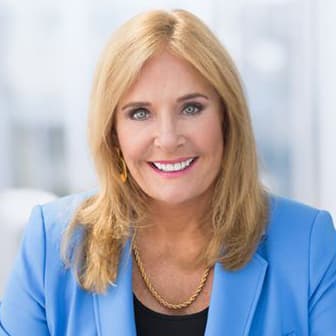Published on Fortune.com
From Washington to Wall Street, experts are wringing their hands about the future of the American workforce.
Amid the pandemic, millions of women either quit or downshifted in their jobs to prioritize their kids' education or their own work-life balance. They are now accustomed to more flexible, supportive schedules–and they aren't in any hurry to return to "normal."
The so-called Great Resignation of workers from the nine-to-five grind could result in the Great REALTOR®-ization of our workforce, provided employers take note of what's allowed women to flourish in the real estate labor market.
While many employers view the Great Resignation as a problem, one industry–real estate–has been way ahead in recognizing the value of work-life balance.
Real estate has always been organized to work around people's lives, rather than the other way around. That's precisely why it's one of the few professions today with a predominantly female workforce.
This trademark flexibility could be chalked up to the unique circumstances of life as a real estate agent. Showing, staging, and visiting properties exclusively during "regular" business hours doesn't work for most clients. The industry evolved to accommodate different schedules: some people are free during the day, others after hours, or on weekends. And now, thanks to virtual technology, there's the added benefit of remote work options.
Today, many white-collar workers will want to keep some measure of the flexibility in their career–a flexibility REALTORS® have long known.
Our field was also among the first to empower and reward women in meaningful ways. Women in real estate, on average, make more money than men.
REALTORS® who are women not only compete on a level playing field with their male counterparts, they succeed on their own terms. Since every REALTOR®, in effect, owns his or her own business, many of the traditional power dynamics that still disadvantage women in other industries are absent in ours. The entrepreneurial structure, which accords primary importance to hard work and initiative while paying no heed to gender, ensures that REALTORS® are judged by merit alone.
These are some of the reasons why our industry has grown during the pandemic. Since January 2021, more than 250,000 people have joined the National Association of REALTORS®–and over half are women.
There's a lesson there for employers looking to retain top talent: pay women fairly and let them dictate how they work.
Formal and informal mentorship programs can help employers retain and advance their top women. Every REALTOR® learns by watching and listening to others. My own mentor was Ebby Halliday, who lived to be 104.
A real estate pioneer who entered the profession in 1945, she overcame the sexism of the era to beat "those ol' boys at their game"–and was the first woman to be named Texas Realtor of the Year.
Finally, women are looking for legitimate leadership opportunities. This year, women make up a majority of the National Association of REALTORS® leadership team for the first time. Plenty of other industry groups ought to ask themselves why they can't say the same.
The professional flexibility and support seen in our industry not only make sense for part-time workers or full-time moms, but they're just good business.
The workforce that will dominate America in a post-pandemic environment includes women in a way that the outdated model of the "corporate ladder" never did.
That is how executives and businesses need to think about the coming flexibility revolution: not as a loss for their bottom line or their corporate culture, but as a net gain for their organizations, their clients, and their own long-term ability to attract and retain top-tier talent.
We have long fought to create a more balanced, human approach to business success. As a REALTOR®, I'm proud of that legacy for my industry. But as a woman, I'd like to see every industry take a page from our book.
Leslie Rouda Smith, president of the National Association of REALTORS®, is a Realtor from Plano, Texas, and a broker associate at Dave Perry-Miller Real Estate in Dallas.









